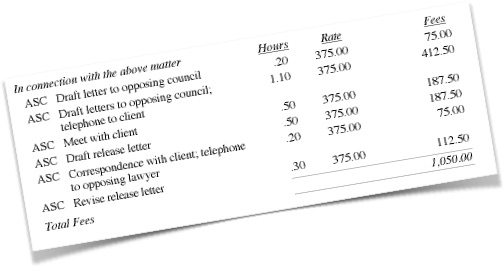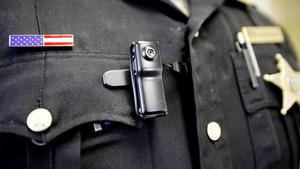|
VCOG files brief in favor of releasing
detailed attorney billing records
The Virginia Coalition for Open Government filed a friend-of-the court case in the Virginia Supreme Court case Bergano v. City of Virginia Beach, No. 171183, on Friday, April 13.
 The case seeks disclosure of the detailed billing records of outside attorneys for the City of Virginia Beach in a land-use dispute with Dr. Allan Bergano, a dentist. Dr. Bergano, who won the underlying land-use case, received heavily redacted copies of the billing records: only the dates, number of hours and the name of the timekeeper were disclosed. The hourly rates and the tasks performed were blacked out. The city claimed the redactions were necessary to protect the attorney-client privilege. The case seeks disclosure of the detailed billing records of outside attorneys for the City of Virginia Beach in a land-use dispute with Dr. Allan Bergano, a dentist. Dr. Bergano, who won the underlying land-use case, received heavily redacted copies of the billing records: only the dates, number of hours and the name of the timekeeper were disclosed. The hourly rates and the tasks performed were blacked out. The city claimed the redactions were necessary to protect the attorney-client privilege.
The brief, authored by VCOG board member Christopher E. Gatewood of Threshold Counsel, PC, in Richmond, asks the high court to overrule a circuit court decision in the city’s favor, and cites a Virginia attorney general’s opinion that concluded, “it is my opinion that the attorney-client privilege exception does not apply to the itemized billing statements in question.”
“It is certainly possible that some of the attorney . . . time entries on these invoices might have included privileged communications from lawyer to client,” the brief says, “It is not the case, however, that all of them are privileged.”
Dr. Bergano is being represented by L. Steven Emmert, a Virginia Beach appellate attorney.
The Knight FOI Fund, administered by the National FOI Coalition, provided a grant to underwrite the costs of preparing and filing the brief.
The brief is posted online on VCOG’s website.
Danville police a model?
 The Danville Police Department elicited praise for the way they handled the release of information to the public following the shooting death by police of Juan Mark Jones. After initially waiting 13 hours to confirm the shooting, the department took just two days after the incident to release body cam video of the shooting. Police Chief Scott Booth said he released the video in part to quell rumors on social media. The president of the Danville/Pittsylvania County chapters of the Southern Christian Leadership Conference agreed that the video “helped give clarity as to what was going on.” The Danville Police Department elicited praise for the way they handled the release of information to the public following the shooting death by police of Juan Mark Jones. After initially waiting 13 hours to confirm the shooting, the department took just two days after the incident to release body cam video of the shooting. Police Chief Scott Booth said he released the video in part to quell rumors on social media. The president of the Danville/Pittsylvania County chapters of the Southern Christian Leadership Conference agreed that the video “helped give clarity as to what was going on.”
The following day, following internal regulations, the department released the names of the officers involved in the incident, prompting the Register & Bee to write in an editorial that Booth and his department had been “open, forthright and honest” with the public.
Two weeks later, the Register & Bee was able to obtain through FOIA copies of emails and text messages exchanged among city officials in the wake of the shooting.
As the Register & Bee‘s editorial said in closing, “Would that every police department in America followed Danville’s lead in moments like these.”
Open government in the news
The Charlottesville judge hearing the challenge two freelance journalists are mounting to obtain records related to the police response to the Aug. 12 Unite the Right rally gave the Virginia State Police 30 days in which to produce a redacted copy of its operational plans for that day. The judge rejected the VSP assertion that the whole document was exempt from disclosure, noting that some parts have already been made public in the Governor’s Task Force on Public Safety Preparedness and Response to Civil Unrest.
Governor Ralph Northam signed into law two bills that will prohibit the release of student cell phone numbers. VCOG asked that the bills be vetoed because they will upend years of standard discretionary practice and will give college students special treatment different from every other Virginia adult. The bills flip the long-used opt-out of public disclosure framework to an opt-in to disclosure set-up, a first in the country for student directory information.
Officials in Bristol expressed surprise when they received a $25,000 unitemized bill from a former economic development consultant, Jim Bourey. Despite Bourey’s high-profile departure as city manager for Newport News following disclosure of a controversial airport financing loan, one Bristol council member insisted that, “No one on this council was advised of what happened in Newport News — not one of us.”
The University of Mary Washington student paper learned through a FOIA request that there were 12 student complaints against processors but the paper was denied records related to them, as were the students who made the complaints.
Williamsburg-James City County judge threw out the defamation case former Newport News/Williamsburg International Airport Director Ken Spirito filed against past and current airport employees. Spirito said the employees implied in text messages shared among them and published in the Daily Press and a state audit that he was shredding documents related to the audit. The judge said the messages didn’t rise to the level of “recklessness” needed to defame a public official. Meanwhile, Spirito is continuing his quest to add the Daily Press as a defendant in a similar suit.
Following vocal complaints from citizens and frustration expressed by state representatives, members of Chestefield County’s Planning Commission grilled economic development officials about a proposed “megasite.” Though commissioners wanted more information and assurances from the officials, the officials said they either didn’t have or couldn’t provide some answers.
The Newport News School Board resumed its search for a new superintendent a few weeks after receiving a stern warning from the Virginia School Boards Association that candidate confidentiality must be protected. A school board member confirmed that someone on the board publicly said that one applicant did not meet all the criteria identified by the board as being prerequisites.
A Powhatan County judge ruled against a former sheriff over documents he wanted to obtain from the county about the removal of language on auxiliary turn lanes from the county subdivision rules. The opinion addressed alleged improper motions to go into closed session (the county had changed its practices by the time the suit was heard), deadline violations, fees charged for the records, and the use of the personnel and legal advice exemptions.
Read the opinion
The Virginia Supreme Court heard oral arguments in a case against the Rappahannock County board of supervisors over an alleged improperly closed meeting. During the arguments, Justice William Mims, noted he watched the proceedings on YouTube and saw firsthand where supervisors had agreed to go into a closed meeting without citing the statute that allowed it to do so. The justices spent considerable time during arguments asking questions about the adequacy of the materials the plaintiff filed in support of her lawsuit. The county argued a supervisor’s acknowledgement that the meeting was improper was inadequate since the same supervisor earlier certified the propriety of the closed meeting.
Listen to the audio of the arguments
A Charlotte County judge ruled it was okay for a local school board member to charge $25 per hour to search his own email in response to a FOIA request, even though the supervisor makes on $2.50 per hour as a school board member.
A Fairfax County judge held a trial last week in a case brought by George Mason students against the university over the George Mason University Foundation’s refusal to turn over records related to the influence of donors. The foundation — like those at other Virginia public universities — says it is not subject to FOIA. The students argue the university has authority over the foundation and so should be responsible for producing the requested documents. Meanwhile, GMU president Ángel Cabrera wrote an email to students and faculty acknowledging that some donors may have been allowed to weigh in on hiring and firing decisions.
Reporters from The Virginian-Pilot discovered that if you want to know where a locality has light posts installed, you have to ask Dominion because they are not given the information. But Dominion won’t tell you, either. A Dominion spokesperson said the company did not reveal street light location because people would be at risk if dark-spot areas were exposed.
In its bi-annual review of state spending transparency, the U.S. Public Interest Research Group dropped Virginia’s ranking from a B- in 2016 to a C this year. One problem the ranking noted was that Virginia’s spending information portal does not allow users to search by vendor.
The Virginia State Police said it was choosing not to release body cam footage at issue in the traffic stop of Washington Redskins wide receiver Paul Richardson Jr. On Twitter, Richardson, an African-American, alleged he was asked by police whether he was a gang member or a drug dealer.
|
